Some drone industry representatives are reacting cautiously to plans by the Obama administration to combat a growing safety threat by requiring buyers to register their drones with the government.
The U.S. Transportation Department is creating a task force of public and private members to recommend how to keep tabs on the swelling number of private drone operators, Secretary Anthony Foxx said at a press conference in Washington. In hopes of beating the expected holiday sales rush, Foxx asked the task force to complete its work by Nov. 20 and finalize the requirement before Christmas.
“Registering unmanned aircraft will help build a culture of accountability and responsibility, especially with new users who have no experience operating in the U.S. aviation system,” Foxx said. “It will help protect public safety in the air and on the ground.”
While saying they recognize the need for greater accountability for unmanned aircraft and will cooperate with the task force, some industry spokesmen said they were concerned about how such aregistry would work, the legality and how effective it would be.
“As with all things, the devil is in the detail,” Michael Drobac, director of the Small UAV Coalition, which represents companies including Google’s Project Wing and Amazon.com Inc.”We have very little detail and much of this feels like it’s being pulled together very rapidly and with very little input from industry.”
Hobbyists
The administration sees registry as a way to encourage hobbyists and other drone owners to follow rules intended to prevent the aircraft from crashing into planes or hurting people on the ground, Foxx said. In the event of an accident, a registry may help the government track down the operator.
Pilot encounters with drones and other incident reports are on pace to at least quadruple to more than 1,000 this year, the FAA said in August. The reports highlight a growing threat to U.S. aviation by unmanned aircraft.
The Academy of Model Aeronautics, which represents hobbyists who fly drones and more traditional remote-controlled aircraft, issued a report saying very few incidents were actual risks of a mid-air collision. AMA, which requires its 180,000 members to register their unmanned aircraft, is working with the government on the project.
SZ DJI Technology Co., the Chinese company that is the world’s leading manufacturer of small civilian drones, looks forward to working with the FAA and the Transportation Department, said Brendan Schulman, the company’s vice president for policy and legal affairs in the U.S.
“The feasibility and effectiveness of any drone registration system will very much depend on the details of how registration would be accomplished, who would manage the process, and which types of drones it would apply to,” Shulman said in an e-mail.
Congress in 2012 exempted drones being flown for recreation from any U.S. regulation, so long as operators followed safety standards.
Congressional Exemption
That prohibition on government regulation may make it difficult to require owners to register their aircraft, Drobac said. “We need to hear where the authority comes from. Would this be mandatory?” he said.
While most members of Drobac’s trade group would support a registry, he said he anticipates that at least some may oppose such a requirement.
Foxx said that creating a registry wouldn’t be the same as regulating the industry and would be legal. There is also no plan to require non-commercial operators to get a license, he said.
Trade Group
The Association for Unmanned Vehicle Systems International, a trade group for dronemanufacturers, supports the government’s registration proposal, President Brian Wynne said.
“It should lead to increased accountability across the entire aviation community,” Wynne said.
The task force must resolve details such as whether previously purchased drones must be registered and who is responsible for registering them. Toys and other small drones won’t be part of the requirement, because they are considered a low risk to safety, the Transportation Department said. The task force will recommend which drones will be exempt.
White House spokesman Josh Earnest said the object is to “to ensure the use of drone doesn’t interfere obviously with commercial regulation” and “allow the private sector to maximize the economic benefits associated with this kind of technology” while ensuring safety.
Non-commercial drone operators must obtain FAA permission before flying within five miles of an airport and must stay away from piloted aircraft and people on the ground, according to the agency. The FAA also has a process for approving drone flights for hire, which must follow similar requirements.
Airplane Collisions
Regulators are concerned that a collision between a drone and a plane, which could easily occur at a speed of 200 miles (320 kilometers) an hour or more, may damage an aircraft or its engines. Encounters with drones can also cause pilots to be distracted from other critical tasks.
Tim Canoll, president of the Air Line Pilots Association union, expressed support for the initiative.
“We look forward to engaging in discussions with this task force in developing the procedures necessary to ensure we maintain the highest levels of safety of our aviation system,” Canoll said in an e-mail.
Industry groups estimate that at least 500,000 drones have been sold in the U.S., many of which are capable of flying thousands of feet above the ground. Separately, the FAA is finalizing regulations for the commercial use of drones weighing less than 55 pounds (25 kilograms). Rules for larger drones will come later, the FAA says.
–With assistance from Angela Greiling Keane in Washington.


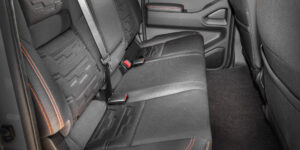






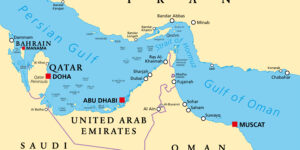






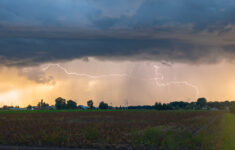
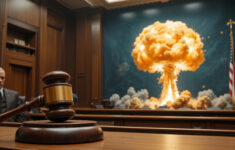


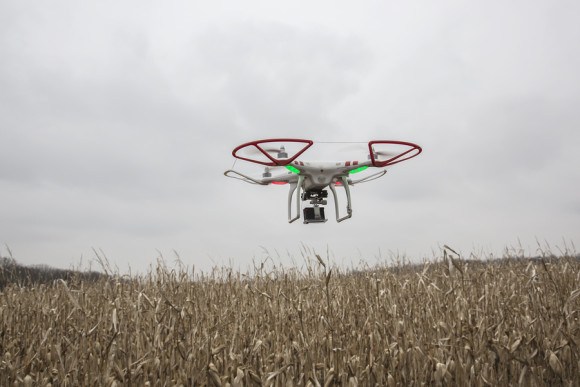
 State Farm Inked $1.5B Underwriting Profit for 2025; HO Loss Persists
State Farm Inked $1.5B Underwriting Profit for 2025; HO Loss Persists  State Farm Mutual to Pay $5B Dividend to Auto Insurance Customers
State Farm Mutual to Pay $5B Dividend to Auto Insurance Customers  AI Got Beat by Traditional Models in Forecasting NYC’s Blizzard
AI Got Beat by Traditional Models in Forecasting NYC’s Blizzard  Viewpoint: Runoff Specialists Have Evolved Into Key Strategic Partners for Insurers
Viewpoint: Runoff Specialists Have Evolved Into Key Strategic Partners for Insurers 